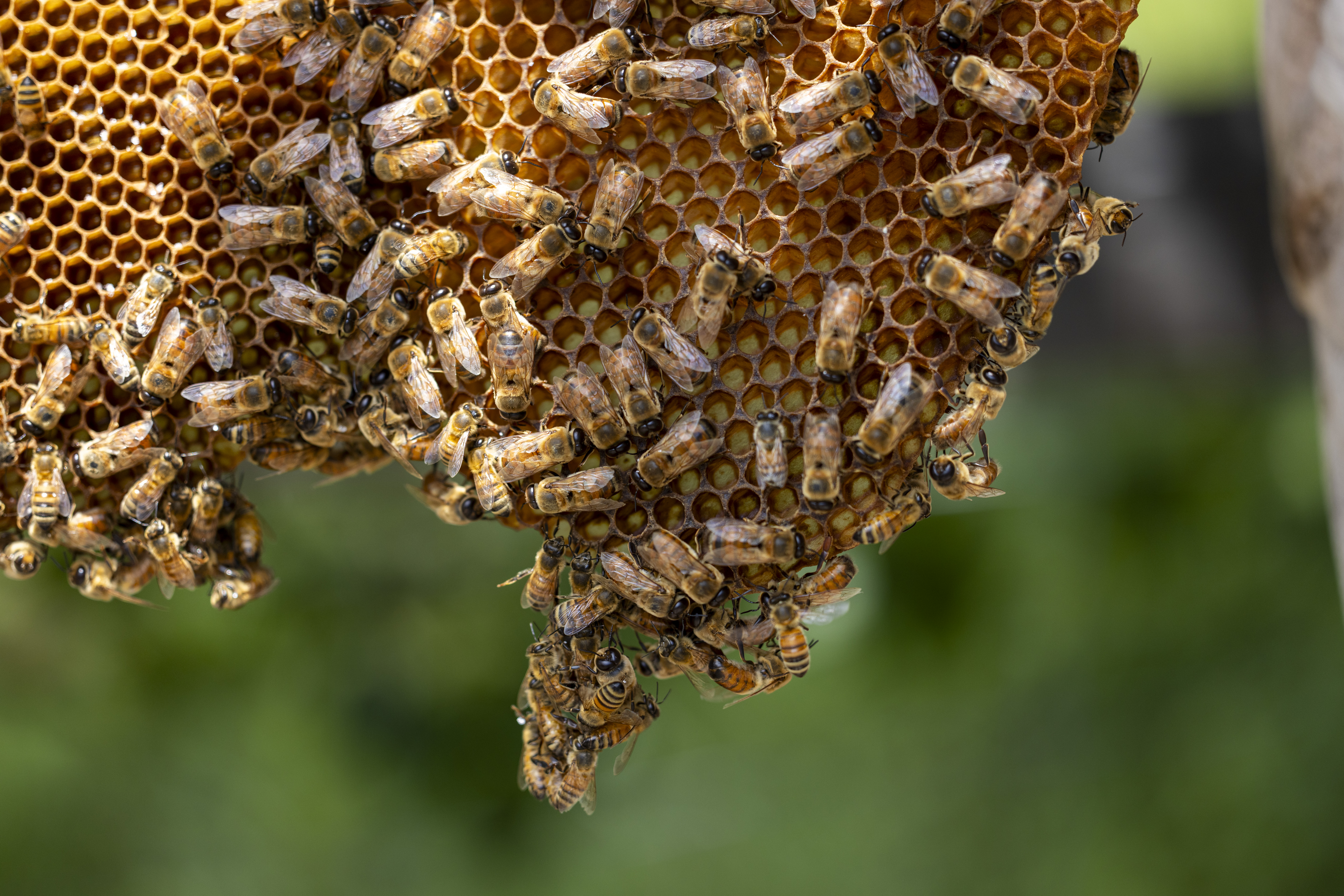Julia Mahood has been rearing honey bees for two decades, so when a hive showed signs of a bacterial infection called European Foulbrood, she decided to set an example for other beekeepers. She called a veterinarian for an antibiotic prescription and posted about the problem on social media.
“It was expensive,” she said, and embarrassing. “There is a stigma. It’s kind of like admitting that your kid has lice. It doesn’t mean you are a bad beekeeper, but it feels like you’ve done something wrong.”
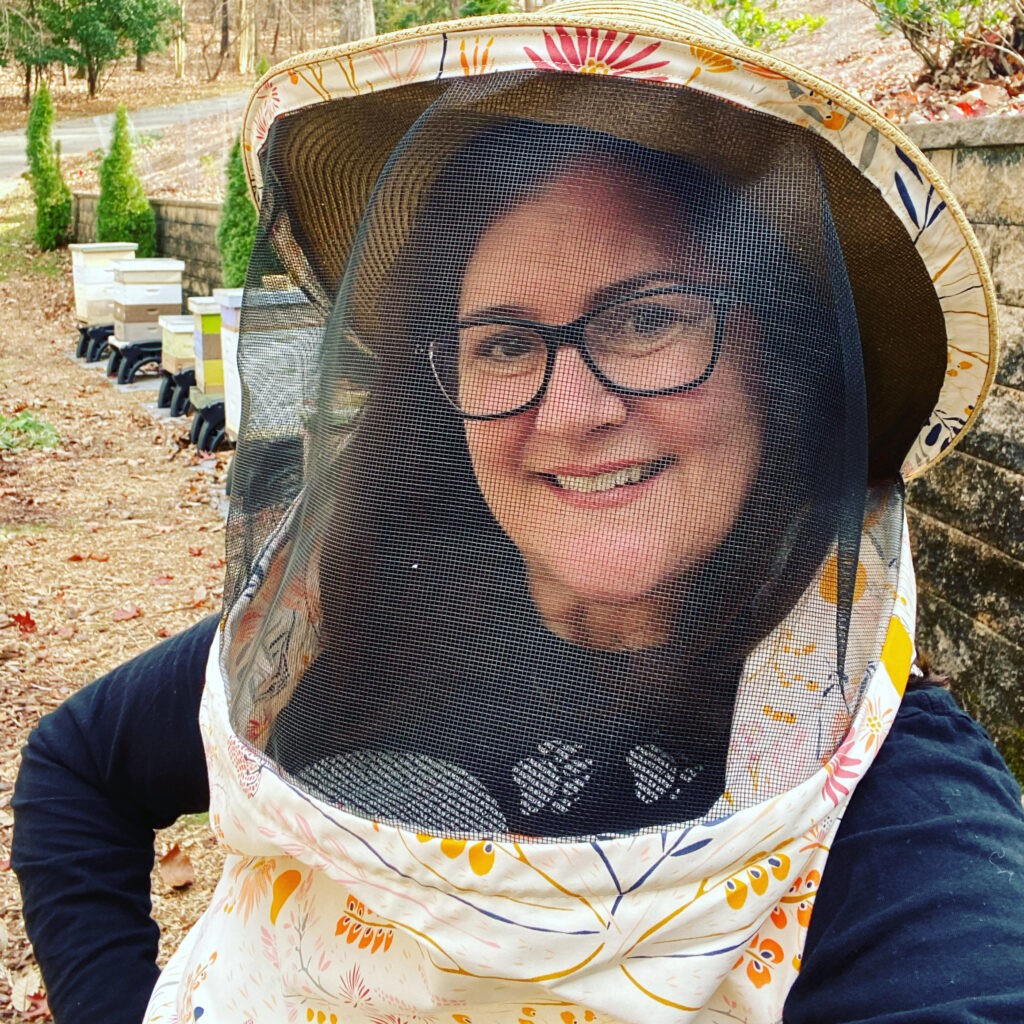
Mahood, who is president of the Georgia Beekeepers Association, lives in metro Atlanta, but the closest veterinarian she could find had to drive an hour to reach her.
“It could have been a better experience,” she said. With few vets available to respond to beekeepers’ calls, getting a routine medication was much more expensive and cumbersome than just a few years ago.
A project by faculty in the University of Georgia’s College of Veterinary Medicine, Odum School of Ecology and College of Agricultural and Environmental Sciences (CAES) could change that.
Joerg Mayer, a specialist exotic animal vet, and entomologists Jennifer Berry and Lewis Bartlett are creating a curriculum that will give practicing veterinarians in Georgia and surrounding states the knowledge they need to diagnose and treat honey bee diseases, mirroring efforts elsewhere in the country such as at Michigan State.
A grant from the USDA’s National Institute of Food and Agriculture is funding the work.
Vet care required
Before 2017, beekeepers could buy antibiotics over the counter, but a change in law now requires that they consult a veterinarian. This can be awkward for both the beekeeper and the vet, since many beekeepers have much more experience with hives than veterinarians do.
“There is a need for education. In the veterinary curriculum, you don’t get to hear much about bee diseases,” said Mayer, who started the Honey Bee Veterinary Program at UGA that includes a beekeeping club for all vet students, an apiary for students to practice and a fourth-year clinical rotation.
“For new vets, if the phone rings one day and it’s a beekeeper—one with 50 hives or one with 5,000 hives—who is worried about a disease that needs to be treated with antibiotics, I want there to be vets in the state who can confidently handle that,” Mayer said.
In vet school, before students learn to recognize disease, they first learn how to recognize the look and behavior of a healthy animal, Mayer said. Bees are the same.
“Once you learn to recognize a healthy hive, to recognize the frequency of the buzz that happy bees make, you then can recognize unhappy bees or unhealthy bees,” Mayer said.
The Honey Bee Veterinary Program equips a small number of students but doesn’t immediately meet the need for vets across Georgia.
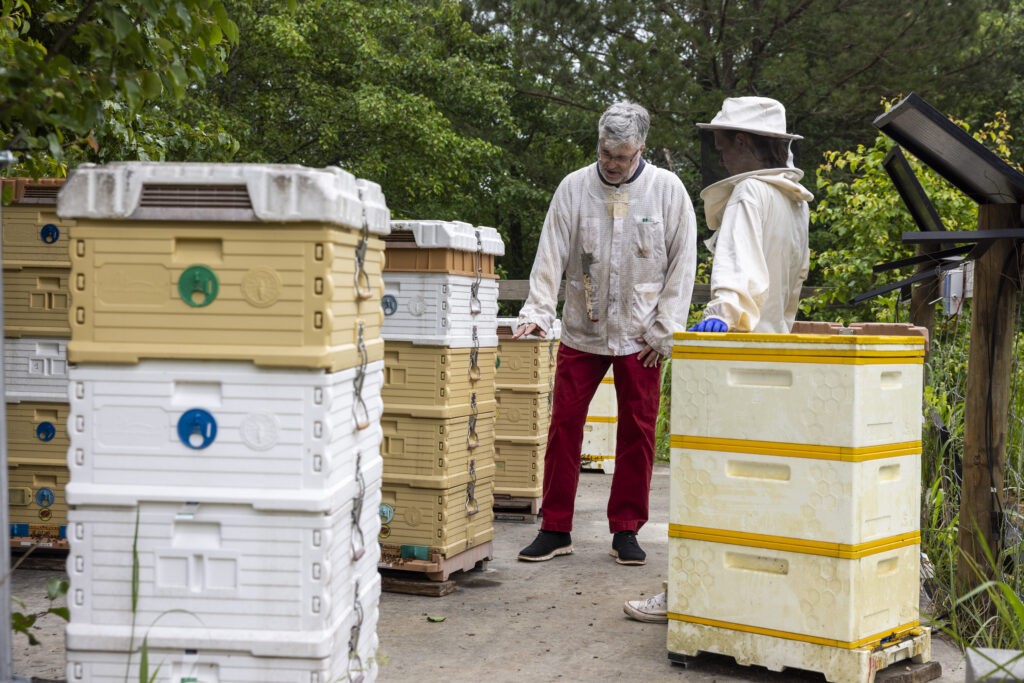
“This training program is exciting and desperately needed,” said Berry, an adjunct professor in CAES’ entomology department.
“When the ability to purchase (the antibiotic) Terramycin from your local hardware store was removed from the shelf, it left all of us—beekeepers and vets—scrambling. Veterinarians didn’t understand why, all of a sudden, they were getting phone calls from beekeepers,” Berry said.
Her own vet called to ask for advice, she said.
“Joerg has done a great job training his students at the vet school but we need to go bigger,” she said. “We need to reach more vets so they can help beekeepers keep their colonies healthy. I’m excited to be a part of this.”
An economic imperative
Building a network of veterinarians with bee knowledge isn’t just about saving costs for hobbyist beekeepers. (Though beekeeping is popular across Georgia. Last month’s Fall Conference and Honey Bee Show in Gainesville surpassed capacity of 400 attendees.)
The value of honey and honey bees in Georgia was over $78 million in 2022, and Georgia produced more than 2.5 million pounds of honey in 2023.
Other valuable crops—such as blueberries—also depend on the services of honey bees and other pollinators. Georgia’s blueberry industry generated more than $526 million in value in 2023, but that success relies on healthy bees.
When beekeepers discover a problem in a hive, they do their best to stop the spread of the infection, said Bartlett, an assistant professor in the Odum School of Ecology with a joint appointment in CAES’ entomology department.
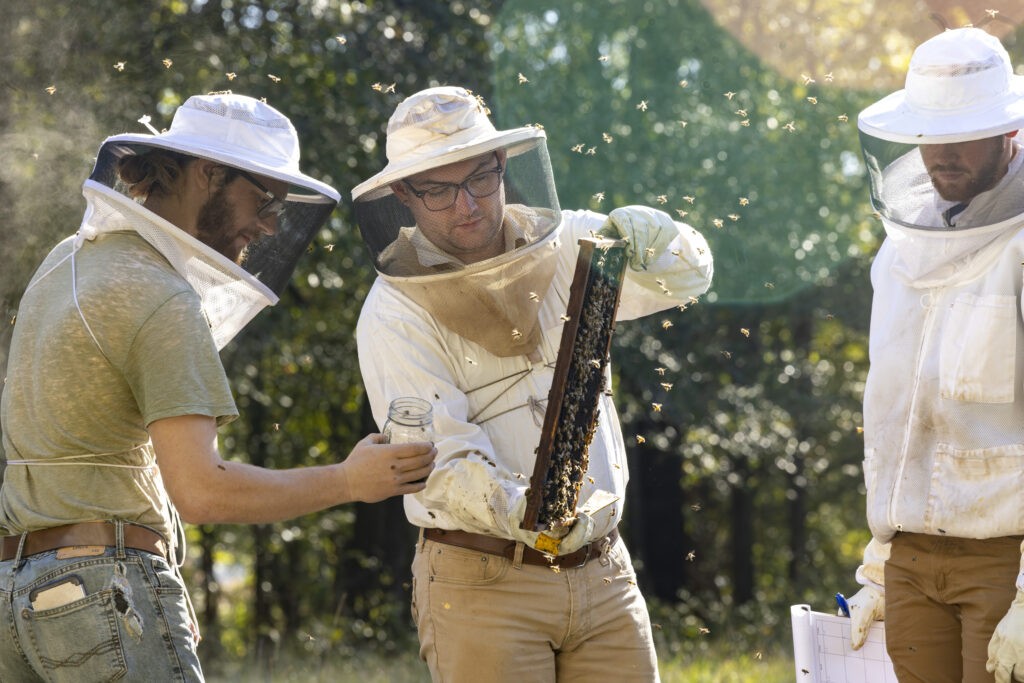
Similar to Mayer and Berry, Bartlett spends hundreds of hours a year delivering hands-on training to beekeepers and students, as well as sharing knowledge of bees through lectures, podcasts, videos, phone calls and tabling at commodity group meetings. Beekeepers eagerly collect any information he can give to protect their hives.
“Beekeepers almost never give up on colonies or allow diseases to take them, precisely because that exacerbates the spread of infections,” he said.
“Better access to veterinarian relationships should ensure easier and faster access to labelled, well-formulated treatments and an easier time getting new medicines into the hands of beekeepers, which might otherwise be challenging to sell without a prescription. This should mean healthier bees, and faster control of outbreaks,” Bartlett said.
The courses will start out with online modules that veterinarians take in their own time, then progress to live, in-person training over several weekends. At the end of the course, participating vets will receive a certificate in apiary health, allowing them to advertise their expertise to beekeepers and preparing them to continue toward an even more rigorous standard if they want: the national Honey Bee Veterinary Consortium certificate.
The consortium’s certification program is an intense program that provides vets with 150 continuing education credits but requires them to complete online modules and submit a final project or complete an online exam. Only nine vets in the U.S. have achieved certification—including Mayer and Athens-area vet Elizabeth Mackey.
Vets becoming beekeepers
Mackey started to add bees to her veterinary practice in 2017 but quickly realized she wouldn’t feel qualified until she kept bees herself. Today, she maintains around 45 hives of her own and is president of the Oglethorpe County Bee Club. In addition to treating birds, fish and reptiles, she works with honey bee breeders.
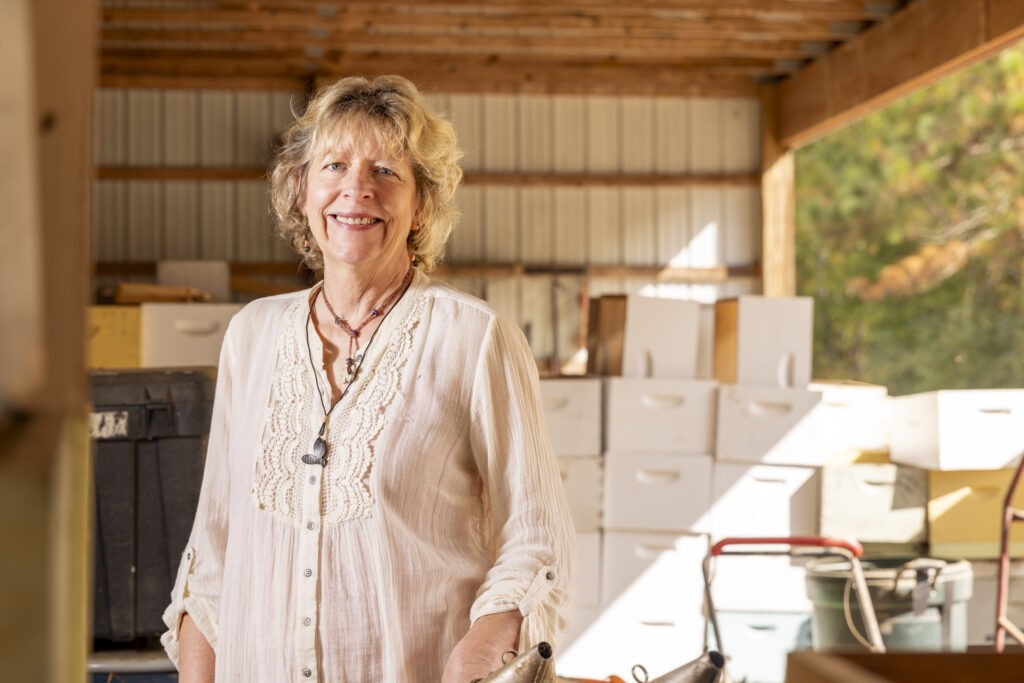
“I totally support putting antibiotics in the hands of veterinarians, but education is everything. It’s impossible to treat bees unless you have experience with bees,” said Mackey, who previously served as the executive director of the Association of Apiary Vets and is active in the Honey Bee Veterinary Consortium to help beekeepers find vets.
“I want healthy honey bees. You have vets who are willing, but they just don’t know the background.”
The first group of veterinarians will begin to take the new UGA apiary health courses beginning late next year.

